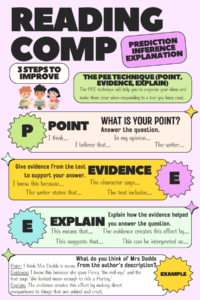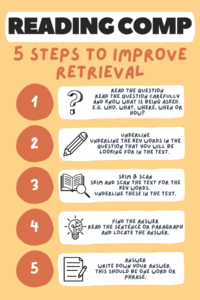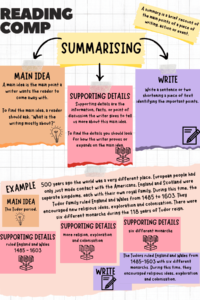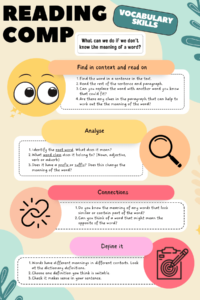At Saint Patrick’s we teach reading with 3 strands: Fluency, Vocabulary and Comprehension.
More information can be found below on each of these areas and information on how we teach these.
More information can be found below on each of these areas and information on how we teach these.




A more detailed overview of the progression of reading can be found at the bottom of this page.
Early Reading is built on phonics, please see our phonics page for more information about how we develop this.
In Key Stage 2, year 3-6, we choose high quality texts for each class to study and use a shared reading approach. We share a text as a class, discussing the vocabulary, the effect, the underlying subtext and really dissect the text. If you’d like to read more about our text selection please see our Reading Spine.
Teaching reading is important but loving reading is more important. Children need to want to read and we do lots of things to encourage our children to love their reading.
A super-packed library with up-to-date texts with lots of cosy places to snuggle up with a good book. You can even read a story with the fish!
Teachers read to children every day – even in KS2 it’s so important that children hear adults read with passion and enthusiasm as a great model.
Every class has librarians who are responsible for the organisation of reading areas and the communal library area. Each half-term, the librarians will visit our library to select the books that are relevant to their current learning.
Book Boats on the KS 1 playground for children to sail away to wherever their books may take them…
Reading Story Suitcases to share a story in EYFS and KS 1 as a family with hot chocolate and biscuits!
Community book swap for staff and parents to exchange and share books once a year.
We encourage children to read 4 times a week at home and we give children access to quality texts from the moment the join our school to ensure that even at the age of 3 they are beginning to develop book awareness. Learning to turn the pages, hold the book the right way up, know that print is read from left to right are all skills that we need to teach our children. When children first enter nursery they will have access to wordless picture books to help foster these skills. Here are some tips on how to share a wordless picture book.
Children will then move onto simple picture books, please read these with your children, they won’t be able to read them yet but listening to you read will help them develop their language and story telling skills.
Once the nursery children have learnt a range of phonics sounds they will begin to bring home blends books, too. These books are for the children to practise their phonics skills and blend sounds to make words. For more advise on phonics please see our phonics page.
Children from reception to year 2 will bring home books matched to their phonics learning. These books the children will be able to read to you and you can talk to your child about the story.
In KS2, we use reading assessments to ensure we have the right level for your child to practice reading at home.
At home, no matter what age please don’t underestimate the importance of reading other stories at home to your child. Sharing a book at home with an adult teaches vocabulary and language, curiosity about stores, the excitement of accessing a text they can’t yet read independently and the special memories of snuggling up and sharing a book with an adult at home fosters a love of reading like no other.